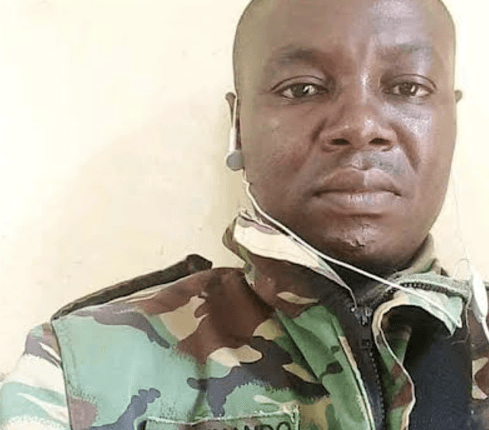By Antynet Ford
Police at the National Police Service in Kiganjo Nyeri are investigating the motive that led to a corporal officer committing suicide.
The officer identified as Collins Imoni Onyando reportedly shot himself yesterday morning using his rifle.
The police said Onyando blew his head near the residence of the college commandant.
The deceased was on duty third shift together with another junior officer at the residence when he left saying he was attending to a call at about 2 am.
The colleague heard a gunshot and mistook it for a backfiring motorcycle.
Three hours later, another officer who was reporting on duty to relieve the officers noticed the body of the deceased lying about 40 meters from the residence gate.
She alerted her colleagues who confirmed he was dead.
Police said a CZ rifle loaded with a magazine of 29 rounds of ammunition was found near his feet and an empty cartridge was recovered at the scene.
The body was moved to the mortuary.
This is the latest such incident to happen.
They include deaths by gun.
This comes as last week, police authorities said police officers worldwide tend to die by suicide more than the general public.
Inspector General of Police Douglas Kanja also said depression affects all people regardless of age or social status. Still, police officers report higher levels of depression and post-traumatic stress disorder than the general population.
He said police work is a noble career because one gets to serve and protect humanity.
The nature of police work as shown by research globally, is also very demanding and stressful.
“Consequently, police officers worldwide tend to commit suicides more than the general public. On the same note, depression affects all people regardless of age or social status. Still, police officers report higher levels of depression and post-traumatic stress disorder than the general population.” Kanja said.
Relatedly, Kanja said, they are now seeing an increasing trend among the youth and children engaging in substance use and drug abuse yet police officers have not been spared either despite being the law enforcers.
To deal with mental illness, the National Police Service has been undertaking deliberate measures by adopting a multi-pronged approach, he said.
The IG said they established the Directorate of Chaplaincy and Counseling to spearhead and coordinate professional counseling and psychosocial support for officers.
Through partnerships with medical institutions and the provision of medical cover, police officers are also able to access psychosocial support but much more is required.



